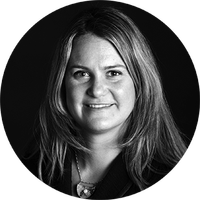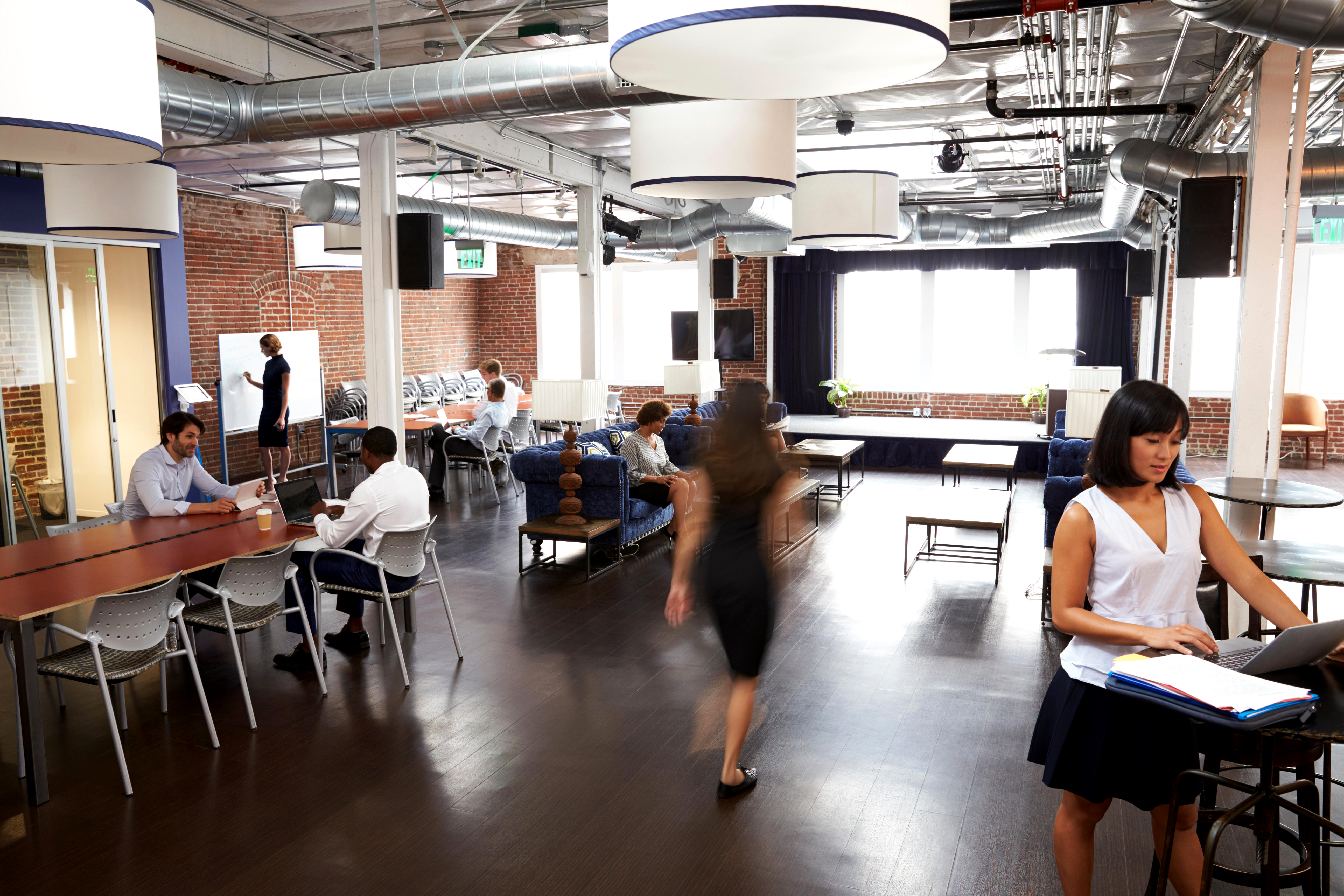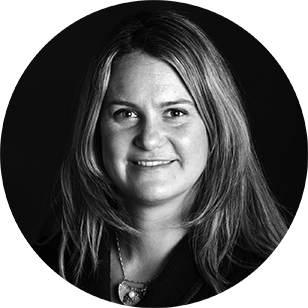The rise of women-only coworking spaces
Women working. No men allowed.


A free daily email with the biggest news stories of the day – and the best features from TheWeek.com
You are now subscribed
Your newsletter sign-up was successful
For entrepreneurs, a coworking space can be the perfect place for a great idea to take root. Without a designated office to go to every day, freelancers, artists, and independent business owners can rent a desk in these hip spaces, which serve not just as an alternative to the noisy coffee shop, but also as a networking spot, where connections are made and ideas forged.
Indeed, coworking has been on the rise for years. The most infamous coworking company, WeWork, has 120,000 customers in more than 150 offices across the globe, and is worth a stunning $20 billion. But not everyone loves this trend. Some women find the spaces on offer so packed full of men who work in the tech industry, they might as well be called "broworking" spaces.
As the #MeToo and Time's Up movements shine a light on some of the hazards of working while female, coworking hubs for women and people who identify as non-binary are popping up around the country.
The Week
Escape your echo chamber. Get the facts behind the news, plus analysis from multiple perspectives.

Sign up for The Week's Free Newsletters
From our morning news briefing to a weekly Good News Newsletter, get the best of The Week delivered directly to your inbox.
From our morning news briefing to a weekly Good News Newsletter, get the best of The Week delivered directly to your inbox.
One of the newest of these is Minnesota's The Coven, which just opened in March and has already accumulated more than 200 members from a wide range of industries — from finance to law to real estate to art or nonprofits.

"A lot of women are really experiencing a world that in many respects was built by men, and, whether intentionally or not, for men," says Liz Giel, an advertising creative strategist and cofounder of The Coven. "It can be a struggle. A part of it is learning how to navigate those struggles, and a part of it is just having a place where you can go and be yourself, and not have any of the pressure to act a certain way or look a certain way. We've always talked about The Coven as a place where you can show up as any version of yourself."
At The Coven, a sign at the front entrance reads "Witches don't apologize." A hot-pink collage-like mural wall features famous women's faces, from Harriet Tubman to Rihanna, while artwork by local women artists, like painter Ashley Mary, hangs throughout the two-floor space. There are two small rooms for private phone calls, but the workspace is shared, with a mix of tables, couches, and chairs. There's a nursing room, a shower, and a beauty room stocked with complimentary products. Members-only professional programming includes speakers on themed topics each month, from financial health to body positivity. Members can use eight hours of guest passes per month, and they can even invite men to a meeting, as long as it's held in the conference room, the space's one co-ed area.
Other female coworking spaces also have a wellness focus. Instead of foosball, ping pong tables, and beer on tap, Seattle's The Riveter offers barre classes and meditation sessions. In its latest Brooklyn branch, New York's The Wing offers its 1,500 members a podcast recording studio, a small space for yoga, and a free photo booth.
A free daily email with the biggest news stories of the day – and the best features from TheWeek.com
"These entrepreneurs realize a gap in the system and they are supplying it," Ellen Galinsky, president and cofounder of the nonprofit Families and Work Institute, tells The Washington Post.
Many women-centric coworking spaces cost about the same as or more than spots at places like WeWork (which starts at $220 a month for a hot desk). For example, The Riveter costs $375 a month for full amenities, and The Wing is $250 a month for an all access membership to multiple locations. The Coven is priced at $200 a month or $2,200 a year.
From the beginning, The Coven's founders knew that they wanted to create a more accessible professional community for women and non-binary folks, and built a business plan that would allow 20 percent of their members to receive a membership at no cost.
"Our business model was built around having some sort of gifted membership," says Alex West Steinman, a public relations strategist and Coven co-founder. "It's not just that we have it, but that was the first thing that we decided and then we figured out how to pay for it."
Giel and Steinman laugh when asked whether they've been approached by men wondering why they can't join. "Of course!" says Giel. "Of course we have."
But the point of The Coven — and most women-centered coworking spaces — isn't to exclude men. It is to create a place that's specifically for women. And many men get that, Steinman says.
"We've had a lot more supporters than not, and I think the thing that men start to understand is that, 'Wow, this is really needed, women need a space like this.' We've had quite a few men actually gift a membership to women in their lives or just into our pool of scholarships," says Steinman. "People are starting to notice that this is something that women need and it's an unmet need."
The group says their most difficult communications challenge has been to convince women that investing in yourself is an okay thing to do.
"When you're creating something that's not in the world, that's a shock for people," says Steinman. "It's taken a bit of time to coach people, to teach people that it's okay to have a space like this for yourself."
Erica Pearson is a journalist based in Minneapolis. A former New York Daily News staff reporter and editor, her work has also appeared in Women's Health magazine, Dow Jones' Moneyish, and Wirecutter, among other publications.
-
 The ‘ravenous’ demand for Cornish minerals
The ‘ravenous’ demand for Cornish mineralsUnder the Radar Growing need for critical minerals to power tech has intensified ‘appetite’ for lithium, which could be a ‘huge boon’ for local economy
-
 Why are election experts taking Trump’s midterm threats seriously?
Why are election experts taking Trump’s midterm threats seriously?IN THE SPOTLIGHT As the president muses about polling place deployments and a centralized electoral system aimed at one-party control, lawmakers are taking this administration at its word
-
 ‘Restaurateurs have become millionaires’
‘Restaurateurs have become millionaires’Instant Opinion Opinion, comment and editorials of the day
